Just before the NNOM lecture
[ad_1]
Prelude
IT was eight years ago that I delivered the short piece below as my acceptance speech for the Nigerian National Merit Award (NNMA). As I read it again in the process of readying up the delivery of my NNMA Winner’s Lecture in December 2022, I was forcibly struck by the fact that many of the points and issues raised in the acceptance speech are more poignant and more menacing now than they were in December 2014. A journey down memory lane has ended up asdéjà vu, an all too familiar plotline in the narrative of the Nigerian malaise. And so, this painfully rhetorical question:in the past eight years, which has really grown larger and more foreboding – the Nigerian oasis or the Nigerian desert?
This oasis must bloom the desert
(Acceptance Speech, Nigerian National Merit Award, December 4, 2014)
Of all the prizes and awards that have come my way in my nearly 40 years of professional and creative career, the one whose bestowal brought us all together today has a more special resonance and unusual gravitas to it than I could ever have anticipated. From near and far, the congratulatory messages pouring in in the past one week have concentrated not only on the lucky winner of the 2014 Nigerian National Merit Award, but also on the timing of the award and the country which is responsible for its bestowal. I cannot disclose many of the messages in full without sounding gross or boringly immodest, neither can I keep silent about them without denying myself a rare opportunity to share something useful with my compatriots, and without depriving my country of a chance to hear one or two things about itself.
For nearly all these messages say something to this effect: we are happy that this award is coming at a time like this in the history of your country; oh, Nigeria got this right; the existence of this kind of award shows that not all is lost in Nigeria;one writer, a professor of political science and perspicacious columnist for one of Nigeria’s leading newspapers, disclosed how “uplifting and therapeutic” it was for him to learn about this year’s award. Waxing lyrical and eloquently metaphorical, he added: “In a clime where good news is in short supply, [the news of the award] comes as refreshing drops of water, massaging parched throats”. A stellar US-based Nigerian professor of philosophy renowned for his cerebral, unsparing evisceration of the African anomy, called to say that the award indicates that Nigeria is still capable of doing some things right. An old student of mine, now an insightful columnist for a prominent Nigerian daily, exhales, almost carthartically, Oh, what a breath of fresh air!. A younger colleague from the Department of English, University of Ibadan, declared in a telephone conversation whose sheer energy nearly blew up the Nigerian network grid: “Sir, I’m happy for you and happy for myself; now it means we younger fellows have something to look up to”.
Students in my undergraduate poetry class in the Department of English, University of New Orleans, burst into spontaneous applause upon hearing the news, exactly the same way some of my professor colleagues in the same department reacted a few days later. Some of these students and colleagues tell me with an almost filial candor and concern, something to this effect: this is good news, Niyi; better, happier than what has been coming out of Nigeria in recent times. And, never one to miss a good chance to tell Nigeria his mind, the doyen of Nigeria’s op-ed journalism, avowedly now at home abroad, declares with telling acuity: ‘Amid the gloom that has encircled and now threatens to choke Nigeria, this award has largely been spared the corruption that rules the land. It is a reassuring testament that Nigeria can still be true to its highest ideals’. A don from the Communication and Language Arts Department, University of Ibadan, famous for his relentless excoriation of verbal and stylistic infelicities in Nigerian writing, enthused over the phone: with this award, I know there is still hope for Nigeria…. . .
Mr. President, Ladies and Gentlemen, I have cited all these episodes not in aid of some megalomaniacal confesionalism. I am not the first person to receive this award, nor am I going to be the last. Worthier people, many of them my teachers and professional predecessors, have walked this path before, and I have them to thank for blazing a worthy trail. The purpose of this narrative is to show how people from different climes, different persuasions, and different stations of life perceive the Nigerian National Merit Award vis-à-vis the nation that has created it as its National Order of Distinction. For the NNOM is larger than any awardee; the light which issues from its beacon transcends the turbulent expanse of Nigeria’s territorial waters. What I deduce from my experience since the official announcement of this year’s award is an overwhelming yearning for the NNOM as an Order faithful to its mission; a Centre of Excellence given free rein and empowered in all legitimate ways to carry out its institutional functions not only as regards the recognition of merit and reward for it, but also the cultivation and encouragement of these attributes in Nigeria’s intellectual culture.
To the best of my knowledge, the NNMA remains to date, about the only Nigerian Order of grave national importance relatively insulated from Nigeria’s typical political contamination, a national institution with relatively formidable ramparts against the rampaging monsters of mediocrity and intellectual mendacity. We owe it as a bounden duty to ourselves and to our future to help it in the maintenance of its measure of integrity. We must keep supremely hallowed that tradition of the First Thursday of December every year as has been the practice since 1979 when the maiden edition of the NNMA was bestowed on Chinua Achebe, one of Nigeria’s, nay the world’s most famous writers.
ALSO READ FROM NIGERIAN TRIBUNE
One of those numerous well-wishers in the past week described the NNOM as an “oasis” in the Nigerian desert. It must be a vital part of NNOM’s mission to transform, by its own sterling example, that desert into a blooming landscape and productive humanscape. Urgently needed in this regard is the kind of robust, consistent endowment befitting its status as the nation’s intellectual and creative reference point/powerhouse jealously protected from of all manner of interference and sordid meddling.
But as that ancient Yoruba adage goes, Idelorun ite ni’delorun eye (The peace of the nest determines the peace of the bird). Without a nest called Nigeria, there would be no bird called NNOM. These, no doubt, are dangerously hard times for Nigeria. They are also times which call for the best and boldest in all of us: leaders who follow by leading conscientiously, and followers who lead by following responsibly, with a keen eye on their rights as HUMAN beings. We have a country to build, a future to anticipate, a dream to honour.
Now time for homages and acknowledgements. I remember with the tenderest gratitude today that day in January 1953 when my father, AriyoosuAguntasoolo Osundare of blessed memory, woke me up and said quietly to my mother, Fasimia: Omooyajuyanudaadaa; aamo’we. Mo mu lo isisukuru(This boy looks precocious; he will know book. I’m taking him to school). Tall and sprightly like a regal warrior, father led the way while I broke into a rapid canter to keep up his pace. That morning’s journey landed me in Primary One B at St. Luke’s School, Iro, IkereEkiti, with my first teacher as Mr. G.O. Asake. It turned out to be the first toddling steps of a long-distance run that would take me to all the continents of the world. The Nigeria I grew up in gave me the education which quickened my pace, the kind of culture that priced mind over money, and endowed Character with a prime place in the pantheon of virtues. Farmer-born, peasant-bred, I learnt all so early the dignity of labour and the importance of integrity. These have remained the vital chapters in my book of life, my compass through life’s tempestuous voyage. To my wife, AdekemiOlugbenke, and our children,Moyo, Osuntola, and Bayonle, I say thank you for bearing the brunt of my hectic academic and creative calling, and for helping me stay true to my moral and political principles over the years… .. I am eternally grateful to all my teachers, some of whom are present here today as NNOM laureates: through their worthy examples, I have come to respect teaching as the noblest profession in the world, and to regard my students as my best teachers.. . . . And finally I commend Nigeria for establishing the Nigerian National Order of Merit, and the NNOM for striving all these years to safeguard the survival of that Merit and sustain the integrity and relevance of the culture of the mind.
- Osundare is Emeritus Professor of English
[ad_2]

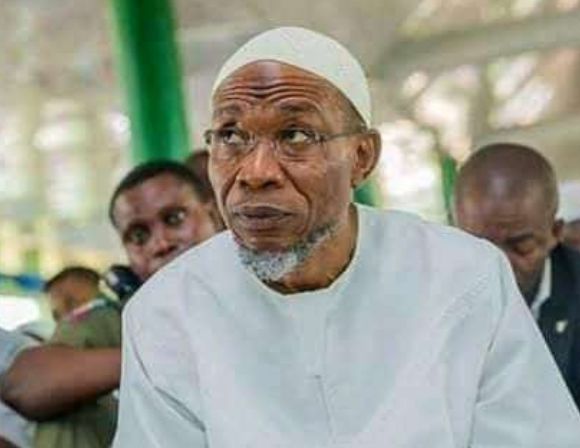
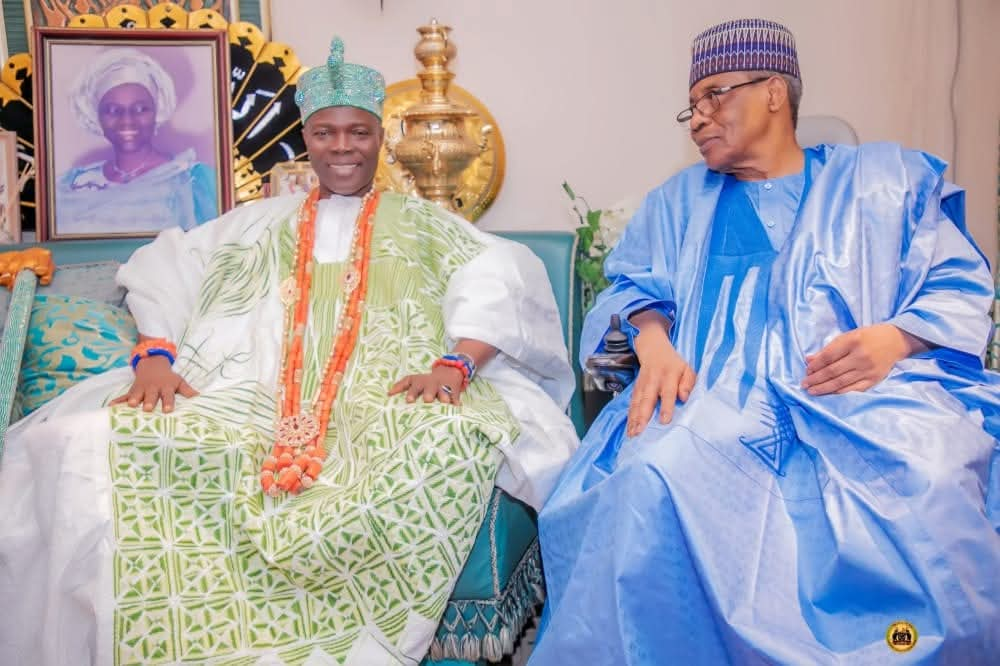


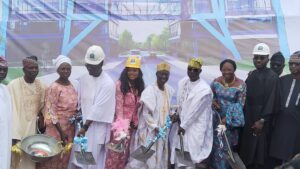

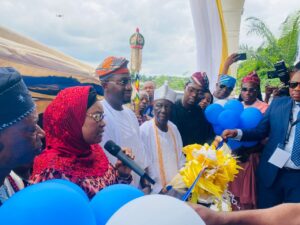



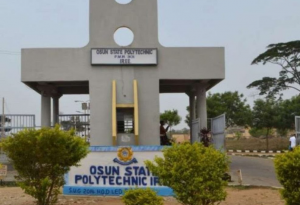


Post Comment